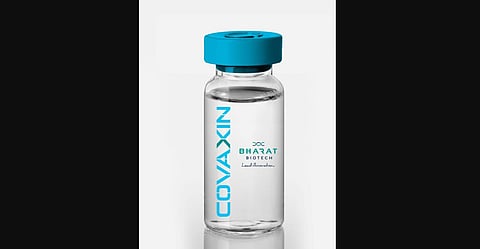

NEW DELHI: One of India’s most prominent virologists, Dr T Jacob John, has proposed that the Covid-19 vaccine candidates already shown as safe and triggering a good immune response in humans should be rolled out for high-risk people in parallel with the phase-3 efficacy trials.
Dr John’s suggestion, along with paediatric infectious disease expert Dr Dhanya Dharmapalan, would be a sharp deviation from the current practices that allow vaccine roll-out only after the efficacy has been established through phase-3.
In a paper published in the Indian Journal of Medical Ethics, the duo has also recommended conditions such as a full-informed consent about the knowledge of experimental vaccine and no liability on the manufacturers for any adverse effects.
Such a limited parallel roll-out for the people with comorbidities and the elderly at risk of severe disease would only yield advantages given the risk of deaths posed by the pandemic, they have argued. Interestingly, the suggestion came even as in July, ICMR chief Dr Balram Bhargava has drawn flak for urging institutes involved in the human trials of an indigenous potential Covid-19 vaccine to fast track its development. In India, at present, there are three vaccine candidates in advanced stages of trials.
Pointing out that the Covid-19 is causing a humanitarian crisis, the authors, meanwhile, have said the country needs to sail right through these unchartered ethical waters, carrying the vaccine as cargo. “There are ethical implications in even a day’s delay, as that might make the difference between the life and death and of numerous individuals vulnerable to the disease,” they have stressed.
“The rules regarding trials in three phases apply under ordinary circumstances when the need for a vaccine is not as urgent as it is now,” says the paper, adding that if the vaccine works, it would save lives, if it does not, there will be no harm done. The paper also cited the example of Ervobo, an experimental Ebola vaccine not having undergone the phase-3 trial, which was, by consensus of all involved parties, directly applied during the Ebola outbreak in Guinea in early 2015, without placebo control.
Some experts, however, insisted that the phase-3 trials are necessary and should be prioritised, over offering unlicensed vaccines to any section of the population. “What is proposed could easily be a phase-3 study in a target population,” said senior medical scientist Dr Gagandeep Kang. Bioethicist Dr Anant Bhan, too, expressed concerns over the suggestions, saying: “We are dealing with a novel virus, and this makes the risk element higher, along with uncertainty,” he said.
“It would be better for efficacy and additional safety data from phase-3 studies before allowing for vaccine access beyond the controlled conditions of a vaccine control trial. Many of these studies are ongoing, and we should wait for that data to emerge to decide on wider use,” he added.